Research Pilot Projects
The DSI Research Pilot Projects provide support for new research programs and encourage multi-disciplinary thinking to address some of society’s most pressing challenges. The key objective of the scheme is to engage researchers across the University to conduct rapid feasibility studies on transformative ideas in the digital sciences, to consider legal and societal impacts and questions arising from digital innovation, and to develop these ideas into concepts or technologies that can attract further investment from government and/or industry. We are focused on supporting projects that demonstrate potential to be catalysts for larger scale, externally funded research collaborations, such as but not limited to ARC Centres of Excellence, ARC Industry Transformation Research Program (ITRP), NMHRC Centres of Research Excellence, Medical Research Future Fund (MRFF) and the like. Our first round of Research Pilot Projects kicked off in early 2023, with the following projects awarded.

Social Situational Awareness
Project Lead: Dr. Kanchana Thilakarathna
The primary objective of the project is to develop a system of tools that collects multi-modal data and conduct a multidisciplinary assessment of social media activities to proactively identify disinformation and influence propagation in online news and social media. We also aim to early detect propagation of influence operations from one social network to another to effectively contain and counter adversarial threats.
The project was presented to US Defence institutes in Washington DC in late July 2023.
DSI funding has helped form a multi-disciplinary group of researchers across the university working on a same problem from different view points. Engineers and IT experts have been developing technologies to disseminate social media data efficiently as well as mitigating disinformation. Political scientists have been analysing societal impact of foreign and adversarial influence. And social scientists have been analysing psychological and cognitive impact of (mis)information consumption. Nonetheless, there is a lack of holistic collective effort in countering disinformation and malign activities in social media, providing opportunities for adversaries to exploit weaker facets of counter measures.
This project brings a diverse multi-disciplinary team of researchers together to address this complex challenge harnessing perspectives and capabilities in cybersecurity, political science, social science, and psychology.
The project has resulted in initiating a number of new relationships and discussions with external entities, including Defence institutes such as DSTG and Australian Signals Directorate. Furthermore, the project was presented to US Defence institutes in Washington DC in late July 2023.

Funding was secured recently for the project titled Edge AI in Multiple UAVs for ISR and Communications which is a multi-university and industry collaboration lead by University of Sydney (Prof. T J Lim and Dr. Kanchana Thilakarathna). The project is investigating distributed machine learning algorithms for deployment in multi-UAV ISR and communication-centric applications that account for physical constraints such as payload, manoeuvrability and energy and minimize probability of detection. DSI support was instrumental in receiving successful funding for this project.
Digital epidemiology: Network-sensitive pandemic and opinion modelling with incomplete data
Project Lead: Dr. Sheryl Chang
This project aims to develop advanced computational framework for modelling opinion dynamics during pandemics, supported by methods from agent-based modelling (ABM), information theory, digital epidemiology, and complex networks. This will allow to model how diverse opinions about public health measures influence the effectiveness of public health interventions in specific, vulnerable communities. The team has undertaken scoping work for the project and completed two work components and three publication outputs from this work.
(i) Generation of the artificial population datasets (25.4 million software agents), derived from 2021 Australian census (released by ABS in 2022), as well as other datasets: the Australian Curriculum and Assessment and Reporting Authority (ACARA) – for school students and teachers, and the Bureau of Infrastructure and Transport Research Economics (BITRE) – for international air traffic.
(ii) Open-source software update using the newly generated artificial population and latest air traffic data.
These work components enabled a more accurate representation of current Australian population and will be used for modelling opinion dynamics at the next project stage.
This scoping work produced these outputs (DSI is mentioned in Acknowledgements):
- A manuscript submitted to BMC Population Health Metrics entitled “Measuring unequal distribution of pandemic severity across census years, variants of concern and interventions” (currently under review; preprint available on arXiv: https://arxiv.org/abs/2306.14667)
- Open-access dataset: Q. D. Nguyen, S. L. Chang, C. M. Jamerlan, M. Prokopenko, AMTraC-19 (v8.0) Dataset: Systematic Comparison of the COVID-19 Pandemic Scenarios, released on 22 June 2023, Zenodo: https://doi.org/10.5281/zenodo.8067859
- Open-source code of our pandemic simulator, AMTraC-19, version 8.0: S. L. Chang, Q. D. Nguyen, C. Zachreson, O.M. Cliff, M. Prokopenko, AMTraC-19 Source Code: Agent-based Model of Transmission and Control of the COVID-19 pandemic in Australia, released on 22 June 2023, Zenodo: https://doi.org/10.5281/zenodo.577821
Digitalising corrosion monitoring of structures by coupling new multi-functional optical sensing systems, machine learning techniques and digital twin models
Project Lead: Dr. Ali Hadigheh
This project is focused on digitalising the built environment to reduce CO2 emissions and improve sustainability. The project is aimed to address corrosion in structures using non-destructive techniques and involves collaboration with various industries and organisations.

The majority of Australia’s infrastructure is over 50 years old and continually exposed to aggressive environments. By 2035, more than 30% of bridges are projected to be classified as structurally deficient. Australian population and economic growth necessitate resilient and reliable infrastructure. This highlights the need to develop new technologies for accurate condition assessment of structures.
The DSI fund facilitated the establishment of a multidisciplinary team from Faculty of Engineering and Science, in collaboration with Transport for NSW (TfNSW) as our industry partner. This collaboration aimed to produce new generation of high performance, low-cost fibre optics and advance their use in health monitoring of infrastructures by carrying out an integrated experimental and field analysis, machine learning modelling and digital twin solution. The outcomes of this novel approach provide a holistic, end-to-end fibre optic structural health monitoring strategy that effectively integrates embedded optical sensors, artificial intelligence and computational modelling for real-time remote monitoring of critical infrastructures. This provides significant benefits through digital transformation and expanding the application of advanced technologies within the built environment, thereby enhancing the resilience and sustainability of infrastructure
Frontiers on realizable regulatory studies of cryptocurrency
Project Lead: Dr. Qiang Tang
The research focus is on the adoption or rejection of cryptocurrencies by regulators via both policy analysis and technical designs, which has large impacts on finance and many other industries. The policy study will include analysis of policies and regulations, economic papers, websites, expert summaries and related financial market/payments datasets.
Our paper was recently accepted (as a full paper with oral presentation) to The Network and Distributed System Symposium (NDSS) 2024, which is a CORE A* conference (one of the security top 4).
The paper is about Private yet Compliable Cryptocurrency Exchange, which for the first time we design a cryptocurrency exchange system that can ensure privacy, while at the same time, still enforcing the most important compliance related rules/regulations.

Real-time anomaly detection in additive manufacturing processes using artificial intelligence
Project Lead: Dr. Xianghai An
The project aims to develop self-monitoring system based on real-time 3D digital image processing and machine learning algorithm to achieve in-situ anomaly detection and prediction in additive manufacturing process. Detection of defects in this manner enhances manufacturing efficiency significantly, reducing 3D printing waste and improving sustainability, cost and reliability.
Augmented-Human Research and Engineering
Project Lead: Dr. Anusha Withana
The project aims to use computational fabrication technologies to create transformative wearable and implantable devices that work in real-time for people with chronic health conditions and disabilities. These devices can be used for monitoring, feedback and prediction of human activities including physical, physiological, and biochemical modaliites with specific focus on applications in demanding environments.
Optimisation of processing parameters for the fabrication of refractory alloy components for space applications using laser powder bed fusion technology
Project Lead: Prof. Gwenaelle Proust
TThis project aims to harness the power of computer vision, natural language processing and drone technology to establish a framework for quick post-damage intervention and condition mapping of infrastructure and crucial for effective response management.
Computer vision inspection of structures in post-disaster scenarios
Project Lead: A/Prof. Daniel Dias-da-Costa
This project aims to harness the power of computer vision, natural language processing and drone technology to establish a framework for quick post-damage intervention and condition mapping of infrastructure and crucial for effective response management.
Seed Projects

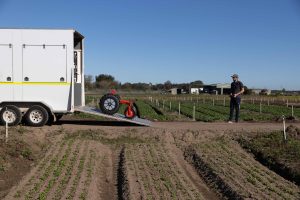
The purpose of the DSI Seed Funding program is to identify key digital challenges facing industry and to stand up teams of researchers to undertake fundamental and applied research focused on addressing these issues. The program comprises three stages, designed to facilitate a workflow from initial concept exploration, through an intial scoping or feasibility study and culminating in external grant development support for the preparation of proposals or tenders for large scale collaborative funding opportunities.
Stage 1 – Seed Projects
Horticulture Digital Twin for Improving Farm Operations
Project Lead: Prof. Salah Sukkarieh
New seed funds from DSI have provided the team with the opportunity to engage with both local and international industry to develop translational pathways for the research. Currently the team is engaging with prominent horticulture organisations, leveraging their expertise and insights to define the operational parameters of the research initiatives. The focus will be on Digital Twins and Optimisation and will underscore the sophisticated technological aspects of the research.
A Unique Phenotyping Robot for Precision Seed Selection and Seed Placement for the Vegetable Industry
Project Lead: Prof. Salah Sukkarieh
We have continued our work in developing smart digital solutions for small-holder farmers. Our core focus involves developing remotely controlled ground mobile platforms with the potential for full autonomy, thereby not only revolutionising on-farm productivity and food security but also elevating the skill sets of local farmers and their communities. Recognition from funding agencies and our presence at the Global Conference on AI for Good validates the significance of our approach, reflecting its potential to address the challenges faced by small-holder farmers on a global scale.
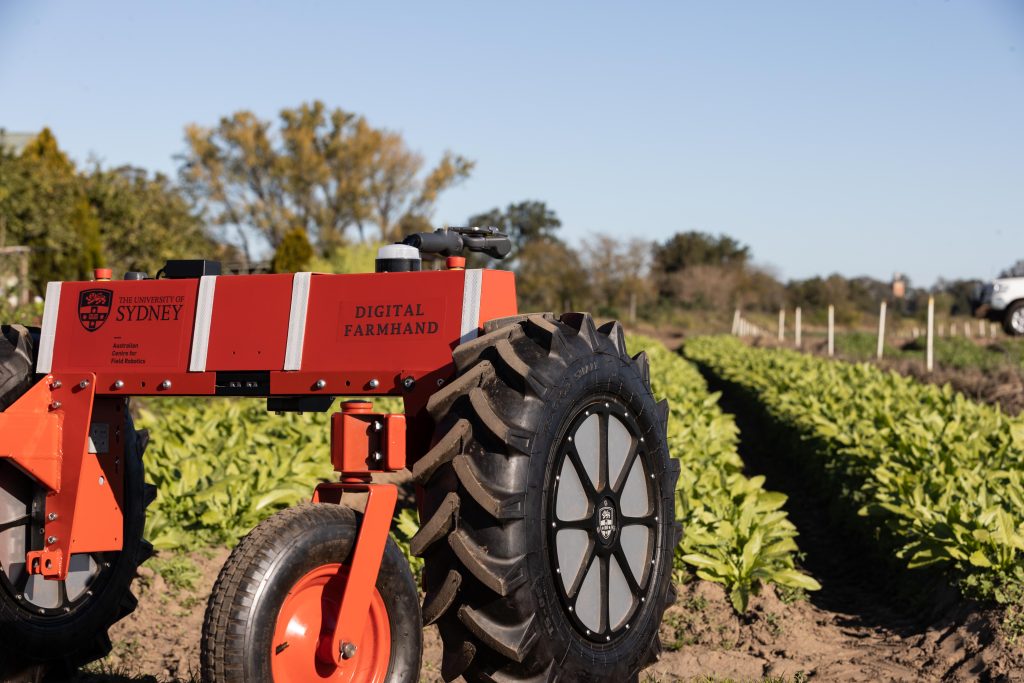
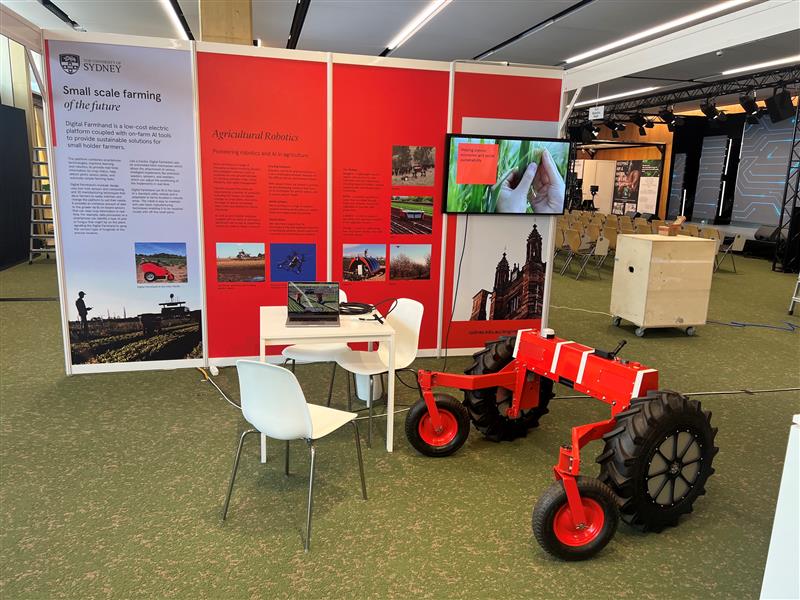
Artificial Intelligence-Assisted High-Content Cell Imagining System
Project Lead: Dr. San Seint Seint Aye
This proposed digital technology engagement will significantly relieve the labor-intensive bottlenecks of volumetric bio-imaging especially in rapidly evolving organoid and bioprinting field and, thereby increasing the throughput and efficiency of the biomedical studies. This workshop aims to establish the Australia’s first ecosystem that brings expertise of Artificial Intelligence(Digital Science Initiative) to high-content bioimaging led by our key industry partner Evident Australia and bring together application user groups in mechanobiology ,photonics, microfluidics and tissue engineering.
A very successful workshop on 3D Bioprinting and Bioimaging analysis was organised on the 23rd of Aug 2023, at the Charles Perkins Center (CPC) on 23rd of August 2023.The workshop included presentations by A/Prof. Khoon Lim (University of Sydney), Dr. Xiao Kuang (Harvard Medical School) and Dr. Ann-Na Cho (Macquaire University). Representatives from AXT Pty Ltd showcased bioprinters and latest methods/tools for tissue engineering solutions that can help develop inspire future tissue engineering solutions and stimulate possible collaboration with leading researchers and industry partners. The one-day workshop was concluded with hands on demonstrations and lab tours that were well received.
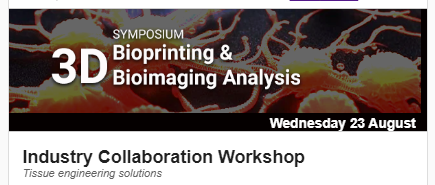
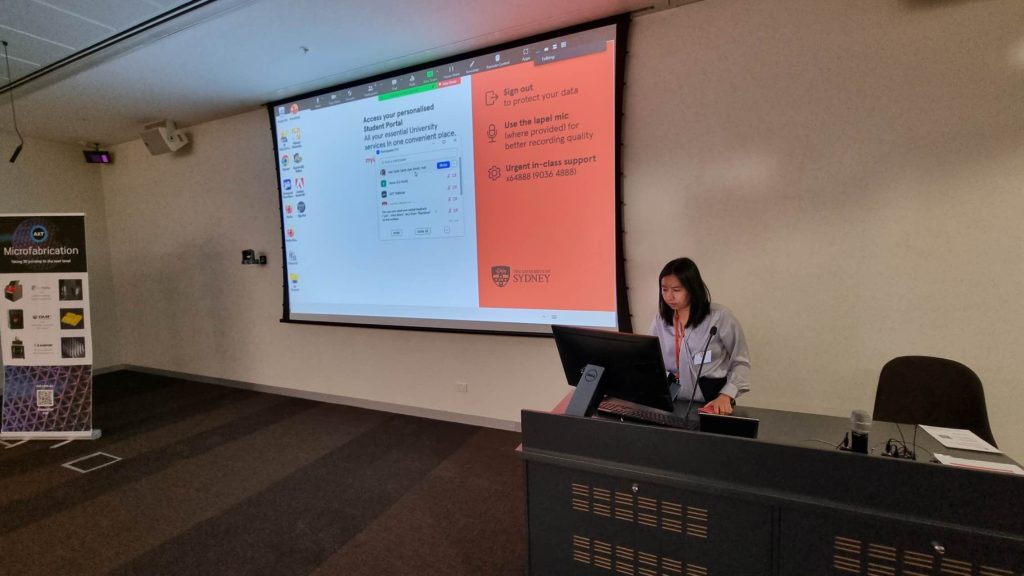
Workshop on Space AI Agriculture
Project Lead: A/Prof. Zhiyong Wang
The workshop under DSI Agriculture theme aims to bring together academics and industry partners who are interested in using space technology and AI for agriculture sectors for building partnership.
Project Analytics: The role of analytics in engineering decision making.
Project Lead: Prof. Jennifer Whyte
The John Grill Institute for project leadership, with a mission to improve project leadership in Australia and internationally, has been working with the DSI to develop research on data analytics in major projects. A workshop was held in May to bring many DSI academics together across the faculty to shape future agendas and bids around project analytics. Recent outputs include:
Journal
Whyte, J., Comi, A., & Mosca, L. (2022). Making futures that matter: Future making, online working and organizing remotely. Organization Theory, 3(1), 26317877211069138. https://doi.org/10.1177/26317877211069138
Book chapter
Whyte, J. and Eshraghi, A. (2023) Managing Digital Infrastructure on Projects, Gower Handbook of Project Management (eds Turner, R. and Heumann, M.), 6th Edition.
Conference
Eshraghi, A., Jarrahi, M., Whyte, J. (2023) The Role of AI in Supporting Collective Memory for Learning and Innovation within Project Settings, EURAM, 14-16 June, Dublin, Ireland.
Artificial Intelligence enhanced high-content single cell technologies for mechano-medicine profiling.
Project Lead: Dr. Yao Wang
This project is about bringing AI to the development of single-cell expertise (through Digital Science Initiative) provides a unique opportunity for Australia to play a significant role in the maturation of the field and will provide opportunities for Australian scientists and innovators to access some of the $6.3 billion that is expected to be spent on single-cell analysis in 2026. The anticipated project focuses on the emerging mechanobiology field, enlightened by the recent Nobel prize-winning mechanosensitive ion channel Piezo1. We aim to integrate the emerging z-Movi technology (Lumicks) for single-cell avidity analysis with AI for automatic high-content mechanobiology profiling. This technology will enable the development of new treatment strategies targeting Piezo1 and integrin-mediated mechano-sensing. It also has great potential to accelerate the screening of engineered immune cell therapies for precision medicine in a high throughput manner with high efficiency.
Stage 2 – Seed Projects (Industry)
Industry – Resonait Medical Technologies
Developing novel medical devices to assist in the treatment of depression and other mental health concerns.
Industry – GE (Aviation)
AI-aided NLP and other methodologies to automate onboarding EMS parameter mapping into the GE data visualisation tool.
Stage 3 – Seed Projects
Training Centre for Rocket Propulsion Systems and Launch Capabilities
Project lead : Prof. Matthew Cleary
The training centre aims to develop R&D leaders for the Australia sovereign capability in manufacturing guided weapons and access to space.
The team is engaging with about 25 external organisations including international industry primes, large suppliers and Australian SME’s, as well as the Defence Science and Technology Group, the Australia Space Agency and state government agencies such as Investment NSW and the Defence Innovation Network. We are closely working with UQ, Monash and RMIT as well as other research entities such as the Defence and iLaunch trailblazers. A 2nd co-design workshop for the training centre was held at the University of Sydney on 21st August. The training centre aims to develop R&D leaders for the Australia sovereign capability in manufacturing guided weapons and access to space. It will interact closely with undergraduate students, especially through the rocketry teams at the four universities.
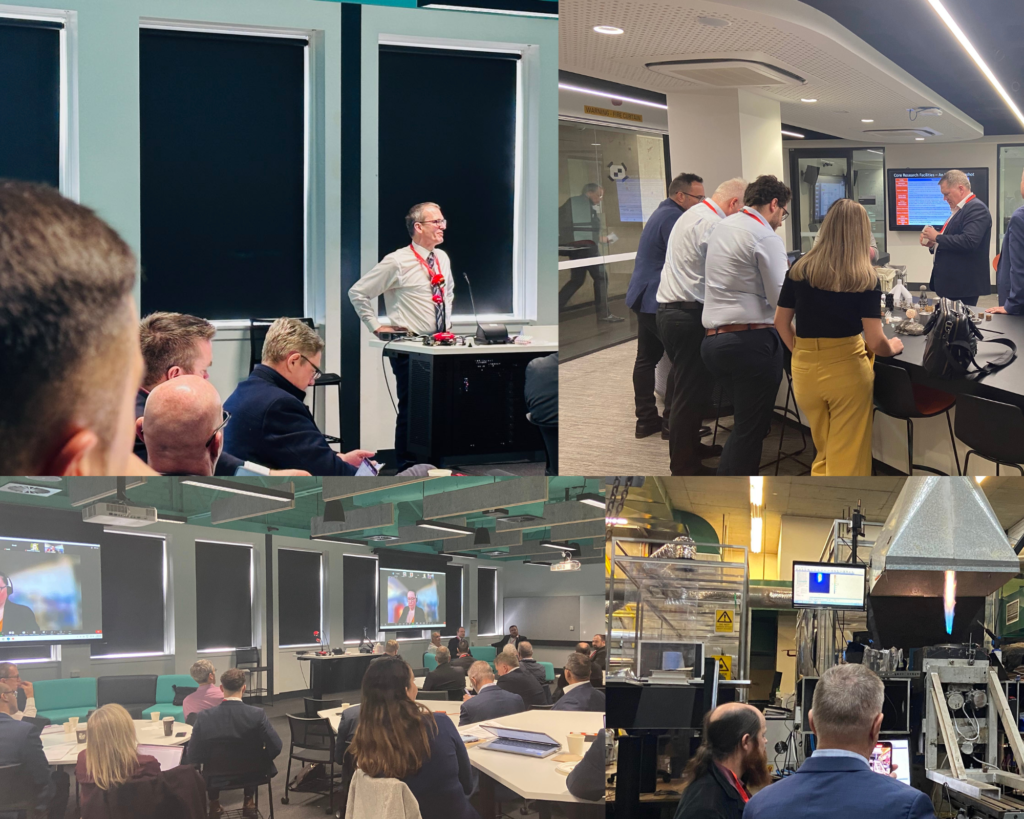
Training Centre for Medical Imaging
Project lead : Prof. Fernando Calamante
The training centre aims to create a focus of expertise across a range of technical areas in medical image processing and AI.
The first workshop for the training centre was held at the University of Sydney on 24th of July.